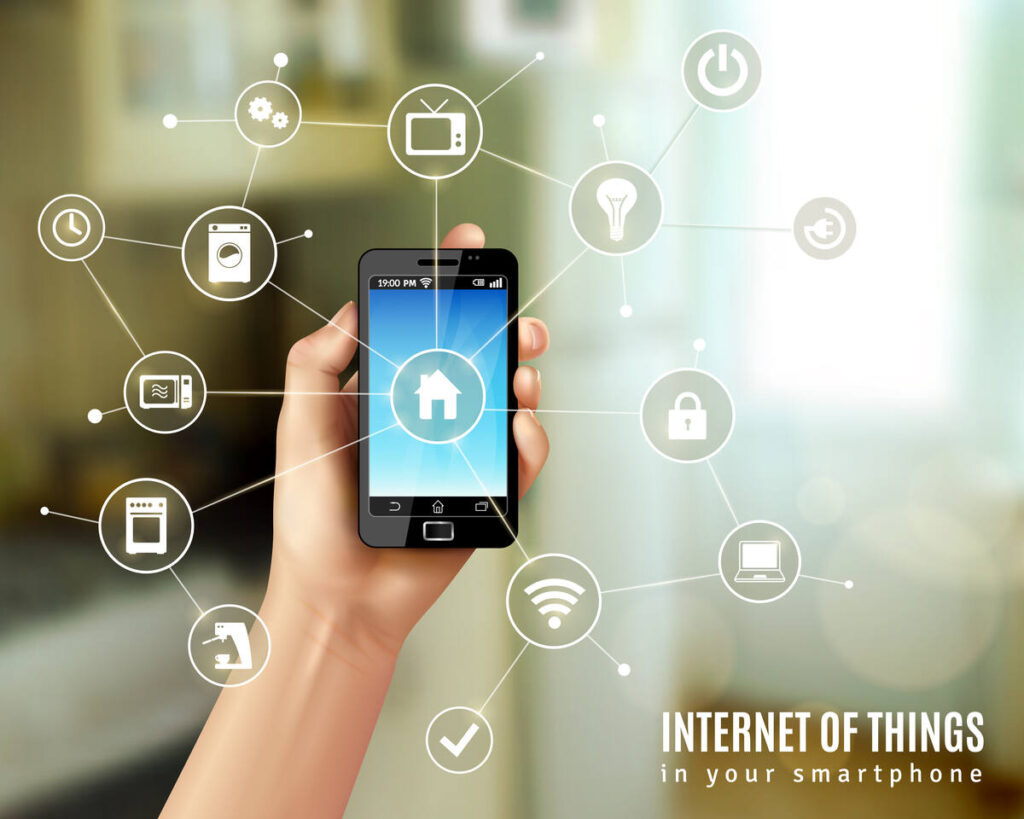The Internet of Things (IoT) is no longer just a futuristic concept, rather it is shaping the present and revolutionizing how we live, work and interact with technology. From smart homes to connected healthcare devices, IoT is making the world more efficient, automated and intelligent.
What is the Internet of Things (IoT)?
The Internet of Things (IoT) refers to a network of interconnected devices that collect, share and process data through the internet. Devices such as smart thermostats and wearables to industrial sensors and autonomous vehicles work together to improve efficiency, automate tasks and provide real-time insights.
With the rise of 5G, Artificial Intelligence (AI) and edge computing, IoT is becoming even more powerful, allowing devices to communicate faster and make decisions with minimal human intervention.
Key Applications of IoT
IoT has made its way into various industries, enhancing convenience, security and productivity. Let’s take a closer look at its impact:
1. Smart Homes & Consumer Electronics
- Smart thermostats (e.g., Nest, Ecobee) adjust temperatures based on user behaviour.
- Voice assistants (e.g., Amazon Alexa, Google Assistant) control home appliances via voice commands.
- IoT security cameras and smart locks enhance home security.
2. Healthcare & Wearable Tech
- Smartwatches (e.g., Apple Watch, Fitbit) monitor heart rate, sleep patterns and oxygen levels.
- IoT-powered hospital equipment tracks patient vitals in real-time.
- Remote patient monitoring (RPM) helps doctors manage chronic diseases like diabetes and hypertension.
3. Industrial IoT (IIoT) & Smart Manufacturing
- Predictive maintenance prevents machine breakdowns, reducing downtime.
- Connected sensors optimize supply chains and monitor inventory in real time.
- Robotics and automation improve efficiency in factories.
4. Smart Cities & Infrastructure
- IoT-powered traffic lights reduce congestion and enhance road safety.
- Smart waste management optimizes garbage collection routes.
- IoT-enabled energy grids improve electricity distribution and reduce outages.
5. Agriculture & Smart Farming
- IoT sensors monitor soil moisture, temperature, and humidity.
- Automated irrigation systems optimize water usage.
- Livestock tracking devices ensure animal health and prevent losses.
6. Connected Vehicles & Transportation
- Autonomous vehicles (e.g., Tesla’s Autopilot) use IoT for navigation and safety.
- IoT in logistics enables real-time tracking of shipments.
- Smart parking solutions reduce traffic congestion in urban areas.
The Future of IoT: What’s Next?
As IoT technology evolves, we can expect even greater advancements:
1. Edge Computing for Faster Processing
Instead of relying on cloud data centers, edge computing processes data closer to the source, reducing latency and improving response times. This is crucial for applications like autonomous vehicles and real-time health monitoring.
2. 5G-Powered IoT Devices
The rollout of 5G networks will significantly boost IoT capabilities by enabling ultra-fast communication between devices, leading to smarter cities, improved industrial automation and enhanced remote surgeries.
3. AI and Machine Learning Integration
AI-driven IoT devices will become more autonomous and predictive, allowing systems to self-optimize without human intervention. Think of refrigerators that order groceries or cars that predict mechanical failures before they happen.
4. IoT Security Enhancements
With more connected devices, cybersecurity risks are a growing concern. Future IoT systems will leverage blockchain technology, biometric authentication and AI-driven threat detection to prevent cyberattacks.
5. Sustainable and Green IoT Solutions
IoT will play a major role in reducing energy consumption and promoting sustainability. Smart grids, energy-efficient IoT devices and AI-driven waste management systems will help combat climate change.
How IoT is Transforming the World
The impact of IoT extends far beyond individual industries and is changing society as a whole. Here’s how:
1. Enhancing Quality of Life
From smart homes that adapt to user preferences to wearable health monitors that prevent medical emergencies, IoT is making everyday life more convenient and secure.
2. Driving Business Efficiency
IoT-driven automation, real-time analytics and predictive maintenance are reducing costs and increasing productivity for businesses worldwide.
3. Revolutionizing Healthcare
Remote patient monitoring and AI-powered diagnostics are making healthcare more accessible and efficient, improving patient outcomes and reducing hospital visits.
4. Creating Smarter and Safer Cities
IoT is optimizing urban planning by reducing traffic congestion, improving public transportation and enhancing emergency response systems.
5. Boosting Sustainability Efforts
IoT-powered smart grids, energy-efficient buildings and precision agriculture are reducing waste and promoting sustainability.
Conclusion: The Connected Future of IoT
The Internet of Things is more than just a trend. It’s a technological revolution that is reshaping industries, improving daily life and paving the way for a smarter, more connected world. As AI, 5G and edge computing continue to evolve, IoT is all set to become even more powerful, leading to innovations we can only begin to imagine.
Whether it’s making cities smarter, improving healthcare or enhancing business operations, IoT is the key to a more efficient, sustainable and intelligent future.



